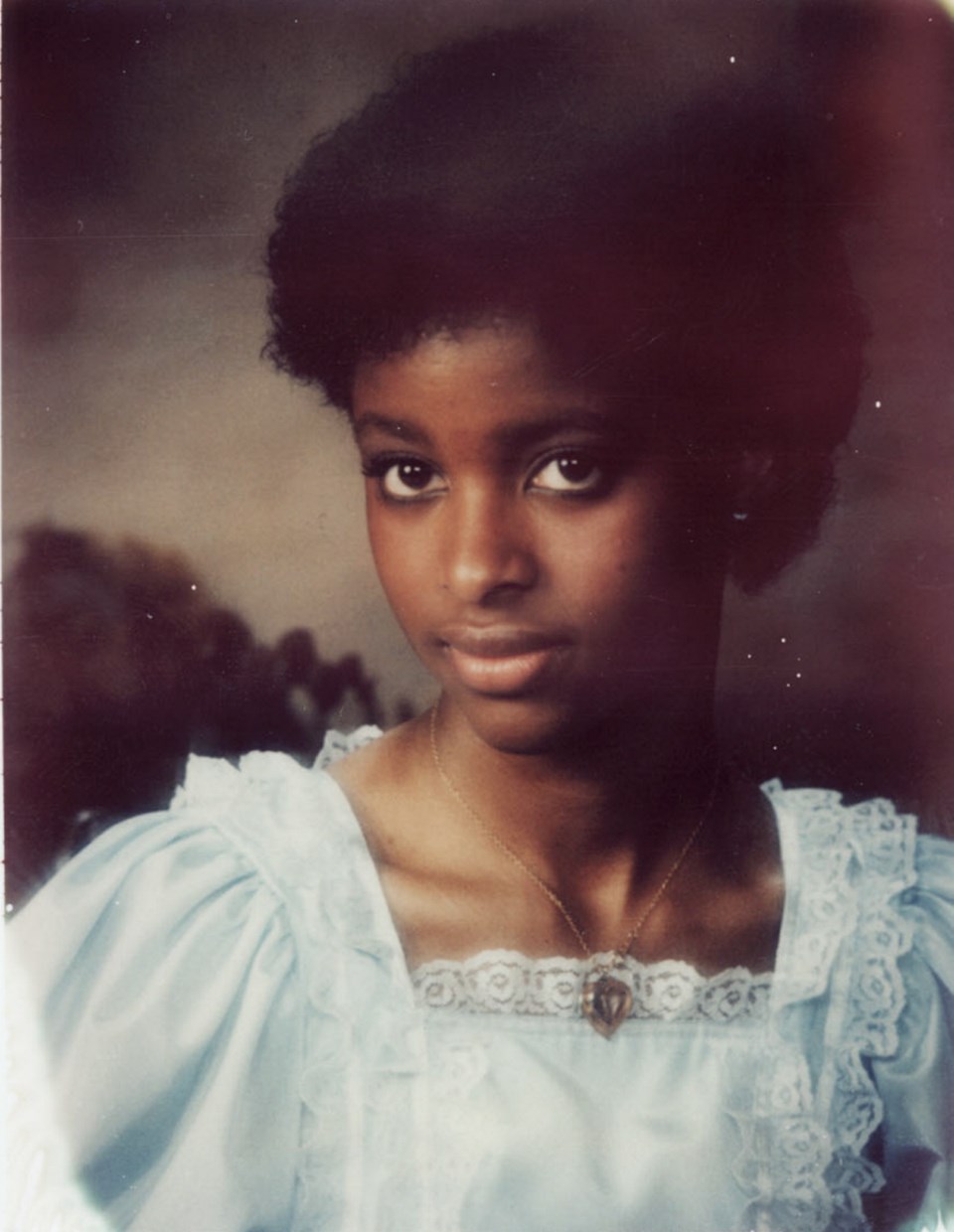On Jan. 18, 1987, Saanich’s Marguerite Telesford went out for her regular morning run — and vanished.
Her body was never found. The 20-year-old’s bloody earmuffs were discovered on Mount Douglas Cross Road, along with a series of bloodstains, some hair, a spent shotgun shell and a pry bar.
It was more than a year before Victoria resident Scott MacKay was charged, another year after that before he was convicted of murder.
He was sentenced to life with no possibility of parole for 15 years. In fact, he was denied parole in 2004, again in 2011, in 2013 and again just a month ago.
Every time he comes up for a hearing, it hits Norma Cowell hard. She and her husband, Bill Cowell, raised Telesford for the last five years of her life. The Cowells had known Telesford through church, and took her in as a teenager when things didn’t work out at home.
When Bill died in March, it was without closure, for Telesford’s murder is a story without an end — there has been no explanation from MacKay, no clue as to what happened to Telesford’s remains.
According to parole board documents, MacKay admits he was capable of killing the young woman, but says he has no recollection of doing so or of disposing of her body. He has suggested it might have happened while he was having a blackout, as he had once taken an axe to a car in such circumstances and, on other occasions, people had described him doing things he didn’t recall.
That clashes with the testimony at his 1989 trial, when five of his fellow inmates testified he had implicated himself in the killing. MacKay accused them of lying for the reward money, and accused police of planting a crucial piece of evidence, a pompom found jammed in the undercarriage of his truck.
The Crown’s theory was that MacKay, who had a history of violent assaults on vulnerable women, accosted Telesford as she ran. When she rebuffed him, he drove over her and then shot her, the Crown said.
It was a story that gripped Victoria. Murder victims often know their killers, but MacKay was a stranger to Telesford. Nor was she killed in the kind of circumstances associated with violence. She was a healthy young woman, a brilliant pianist, a University of Victoria education student out for a morning run. It was chilling.
MacKay maintained his innocence through the trial, but was convicted of first-degree murder, later reduced to second-degree on appeal.
It wasn’t until the 2004 parole hearing that his story shifted to the one in which he said he accepted responsibility for the murder, but couldn’t recall it.
The Parole Board of Canada has trouble with that version. It’s one of the things keeping MacKay, 53, behind bars today, as a complete confession goes a long way when authorities weigh whether to release an inmate. (And note that South Australia just brought in a law denying parole to killers who don’t divulge the location of their victims.)
As it is, the most recent parole decision, released in November, questioned MacKay’s credibility.
He has been in a minimum-security facility in the Fraser Valley since 2010 and has, since 2011, been granted escorted temporary absences. However, the warden denied his request for work release and his case-management team doesn’t think he should get either full or day parole yet.
“During your hearing you often answered direct questions in a circuitous and, at times, tangential manner that resulted in quite a bit of inconsistency and the appearance of evasiveness,” the parole decision states.
Although MacKay told the board he wanted to remember the crime to help Telesford’s family find “closure,” and had worked with a therapist to recover memories, the board was skeptical. Further questioning showed MacKay hadn’t worked with a therapist for several years, and that he could have done so but didn’t. That led the board to find his claim of wanting to help the family “to be hollow rhetoric not backed up by action.”
Under legislation passed by Canada’s Conservative government last year, it will be five years, not two, before MacKay will be eligible for another hearing. There’s a bit of a grey area, as the legislation failed to address a Criminal Code provision that still includes the two-year rule, but until the courts sort that out the parole board is sticking with the five-year limit.
Whether or not MacKay wants closure, those who cared for Marguerite Telesford — the family and friends who gathered in Mount Douglas Park when a memorial bench was unveiled in 2001 — could use it.
As it is, each time MacKay comes up for parole, it’s a reminder of the unanswered questions.



